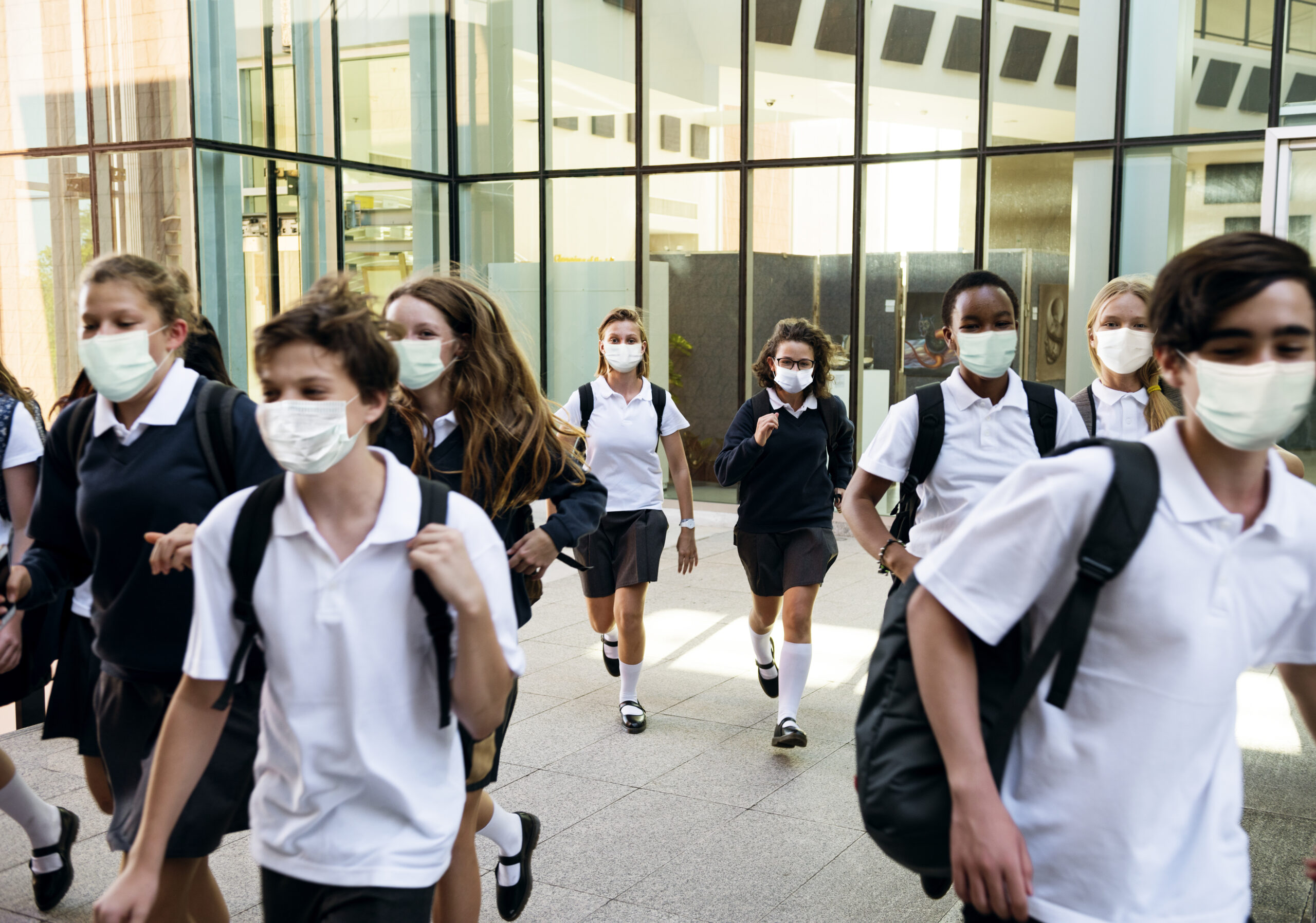This is the third in a three-part series considering the justifications, costs, and alternatives to continued unjustifiable school closures due to COVID-19.
As the COVID-19 “Delta” variant spreads across the country, experts and bureaucrats alike are wringing their hands. There’s even talk of using government force against American citizens who decline vaccination.
Meanwhile, an idea that was unjustified when first conceived and caused disastrous personal and academic results for thousands of young people has been given fresh life: Shutting down schools in order to “protect kids” from the dangers of the virus.
Or, as an alternative cancelling recess, wrapping the kids in masks and positioning them behind plexiglass. We can only hope the next bright idea to protect kids won’t be to wrap them in bubble wrap.
Never mind that the virus doesn’t present a serious danger to most children, or that the costs of school closures have far outweighed the benefits.
The experts and their teachers’ union allies know what’s best for you and your kids and have spoken. Best to not question their dictates. The science is settled.
Not so fast.
Many parents have grown wise to the machinations of leftist school administrators and the union bosses to whom they are beholden and are increasingly seeking alternatives to traditional public education.
With the long-term closure of schools based on shoddy or non-existent science, families are rightfully abandoning public schools only interested in teaching remotely via Zoom and are taking a fresh look at private institutions, charter schools and homeschooling.
This shift is reflected in data collected by the U.S. Census Bureau, which has reported that homeschooling rates have doubled from 5.4 to more than 11 percent of U.S. households.
This trend held steady across demographic groups and despite geography.
Black households rate of homeschooling went from 3.3 percent in the spring to 16.1 percent in the fall. Hispanic households went from 6.2 to 12.1 percent. Asian households went from 4.9 to 8.8 percent, and white households increased from 5.7 to 9.7 percent.
The school-age population of Alaska opting for homeschooling went from 9.6 percent of households to 27.5 percent, and even Massachusetts has seen an increase of more than 11 percent since the pandemic began.
As related by Brian Ray, president of the National Home Education Research Institute and editor in chief of Home School Researcher: “Parents are finding out we do not need a government teaching license to be effective teachers. We do not need $12,000 of our neighbors’ tax money for our children to learn. We do not need the professor-created curriculum.”
These parental efforts at protecting the physical, mental and academic welfare of their children may also be bolstered by current legislative efforts. Two new initiatives in California, the “Educational Freedom Act” and “Education Savings Account Act,” would empower parents to take the tax money usually monopolized by public school district and make their own decisions about where and how the money should be spent.
If successful, these initiatives would likely increase the current trend away from public schools. If those institutions want to remain viable and continue receiving public subsidies, they will have to start prioritizing children’s education, rather than union demands and political preferences.
With the repercussions of the previous school closures only now becoming clear, and the threat of schools again locking their doors, even liberal parents have been forced to recognize that the public unions that largely control school districts care more about getting concessions for their members and pushing revisionist lesson plans based on bankrupt ideas like Critical Race Theory, then they are in ensuring the well-being of their children.
The only question that remains is what they are going to do about it.











